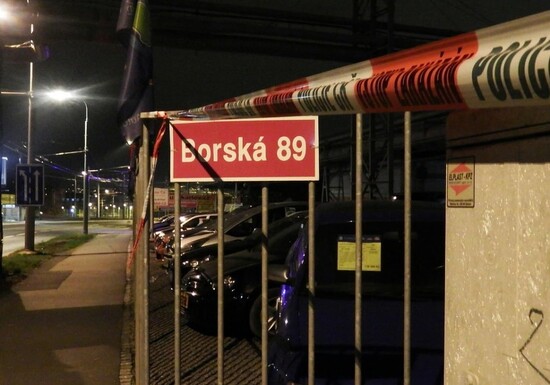Foreign workers according to Czech politicians: 8 hours for work, 8 hours for sleep, 8 hours for misdemeanors

The Czech Interior Minister Chovanec has discovered a new border that must be protected. This time it is an interior one, which consists of foreign workers in the industrial cities who "come over more or less without any control", and, in the words of the Chief of Police Tuhý, they "demonstrably" increase crime rates. "Agencies" bring them in, make a profit, and, after workers lose their jobs, they do not care about them anymore. On Monday, the minister and the chief of police, along with other police officers, regional politicians, firefighters and journalists took part in an inspection of two hostels in Plzen.[1]
The Ministry of the Interior, the Plzen Region, and the city of Plzen would like to solve the issue of the so-called destitute foreigners. Supposedly, these are men who have violent tendencies. There are cases of drunkenness and fights among workers in hostels, clubs and elsewhere, but it is also a common and exaggerated stereotype of men who go away to work and become aggressive without their family supervision. In addition, the destitute foreigners are also seen as those who have lost their jobs and often housing, which could incur additional costs for the city and the welfare state. This is also connected with a wide-spread immigration state approach, which seeks to exploit workers economically and in case of job loss, the unemployment is exported back to the country of origin
The issue of leisure time of foreign workers was described by the regional governor, Josef Bernard, as a regimen of three eights which constitute a day in the life of a foreign worker: "They sleep for eight hours, they work for eight hours, and then there are eight hours when they commit offences, because they do not have families here, they do not realize their potential, and the hostel is not enough to hold them". The aim of the workers, however, is to hold on to a job, and not to draw too much attention to themselves. In addition, they are tired after long, often 12-hour shifts, and they don't have much leisure time between the shifts. The idea that the workers usually spend their leisure time "committing offenses" does not fit well.
The minister Chovanec said that this is not a "hunt for foreigners." However, it is hard to believe this after statements about violent foreigners threatening "Czech women": "We must guarantee citizens of Plzen that their children will get home well in the evening. Catcalling Czech women after drinking a box of wine will not be tolerated. "
Police and media intervention disrupted the privacy of resting and sleeping workers in the dormitories. With a few exceptions, the voice of the workers was almost non-existent in the reports about the inspection. Illness was behind one incident in which a female worker did not open the door, despite the fact that the officer "emphatically repeated" his appeal for a document check. She commented: "I cannot walk, what do you want with me?"
The Interior Minister also actively contributes to the situation when EU citizens who work in the Czech Republic become foreigners. It makes European mobility a threat. This is a very dangerous trend that will be difficult to reverse, as we can see from the negative politicization of the topic of refugees. At the same time, the situation in Plzen exists mostly due to the failure in labor market regulation, and due to an overall tolerance of undignified working and living conditions of the workers, who are employed by large companies indirectly through various subcontractors. These aspects need to be addressed first in order to improve the situation in Plzen, including civil coexistence and the reduction of petty crime. Instead of more police, there is a need for more social workers or labor inspectors, who will seek to improve the status of precarious workers. This applies to both foreign and Czech workers. After all, most of the official agency workers today are Czech citizens.
[1] http://www.blesk.cz/clanek/zpravy-udalosti/448350/stara-mezi-zahranicnimi-delniky-chovanec-s-tuhym-si-posvitili-na-cizince.html
He studied sociology at the Central European University in Warsaw, international relations at Faculty of Social Sciences, Charles University in Prague and completed his doctoral studies in political science at Faculty of Arts, Charles University in Prague. He works on issues as regulation of labor migration in the Czech Republic, the status of foreigners in the labor market and political rights of immigrants. He is director of the Multicultural Center Prague.